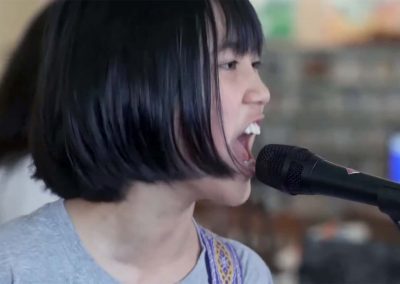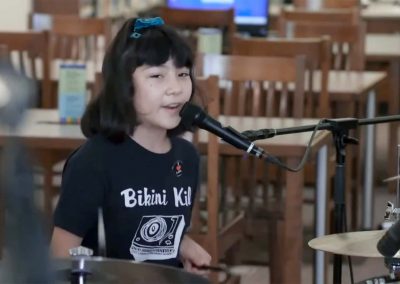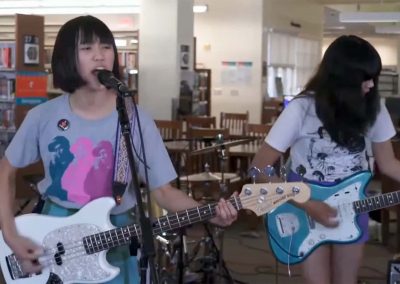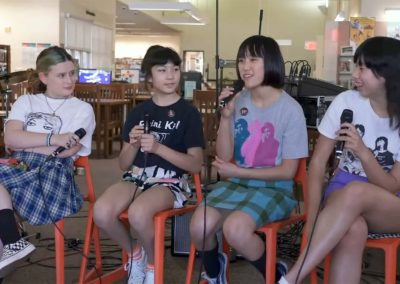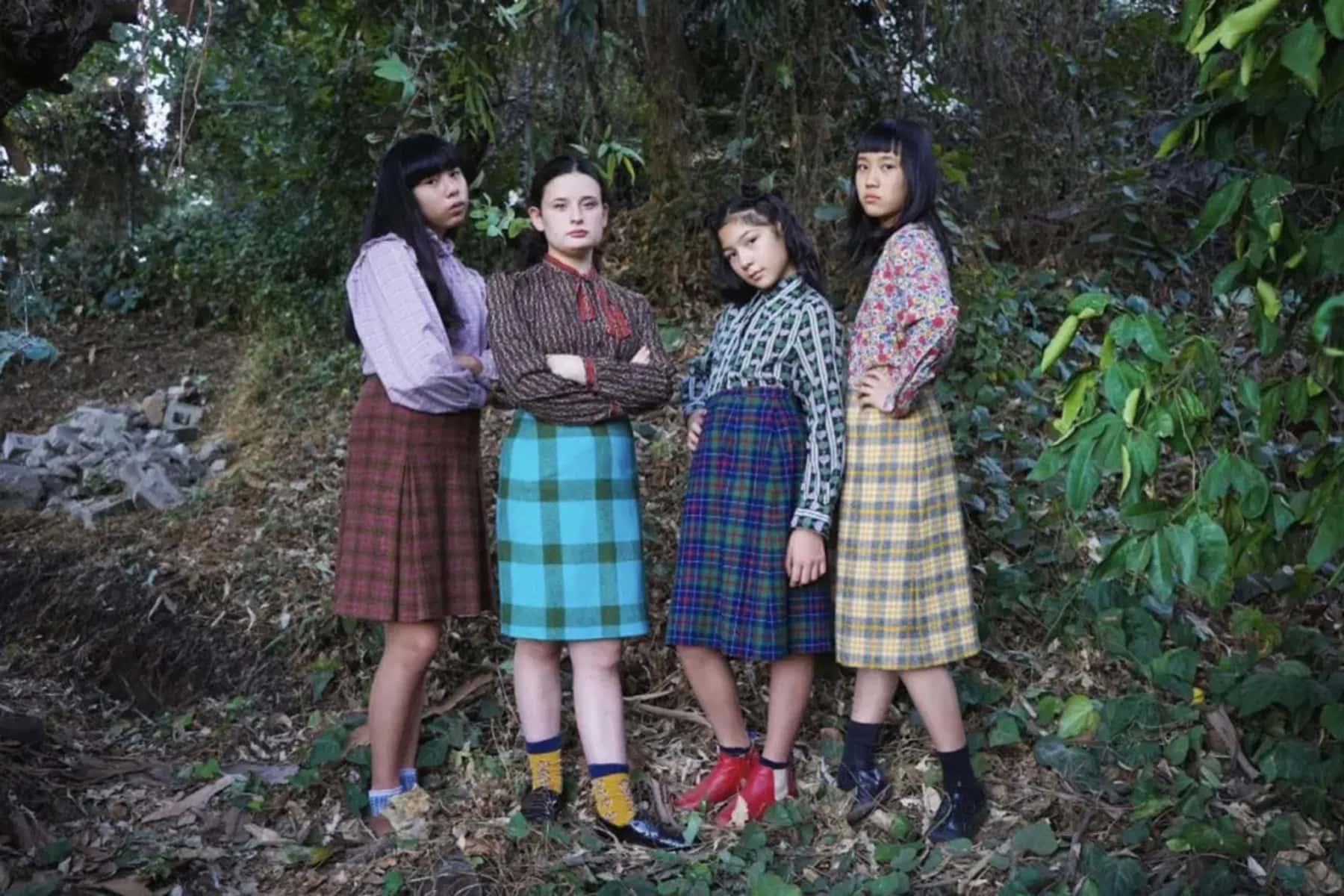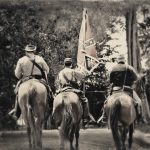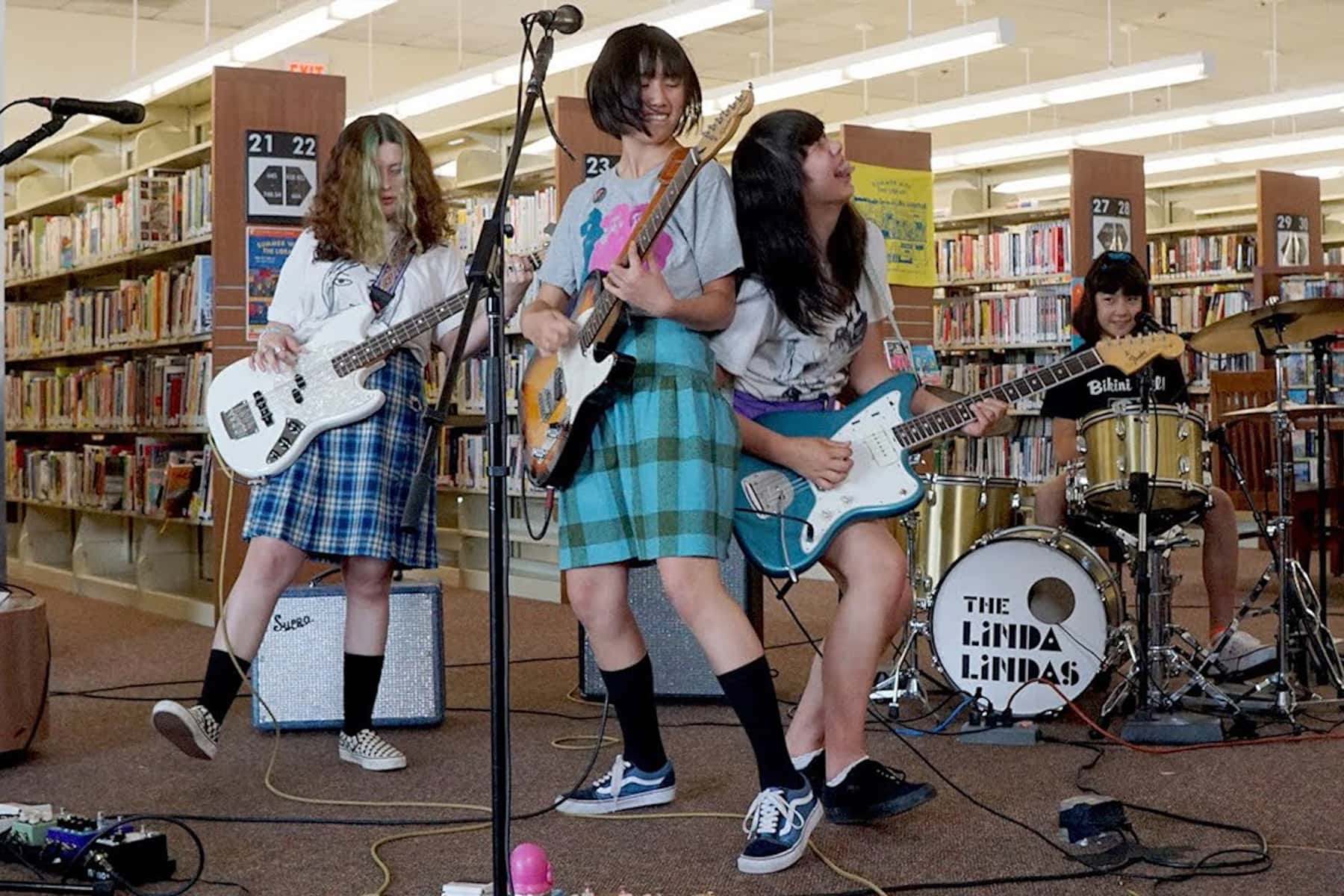
The Los Angeles Public Library kicked off its celebration of AAPI Heritage Month on May 4, featuring its “TEENtastic Tuesdays” with a performance from a local youth band The Linda Lindas. But it was not until a couple weeks later that their set exploded over social media, when the LAPL posted their performance “Racist, Sexist Boy” to its social accounts.
Mila, 10, had barely heard of the coronavirus when a boy in her school said his father told him to stay away from Chinese people.
“It was my first experience of racism, and I didn’t really know how to respond,” said the Los Angeles girl, recounting the conversation in fourth grade in March 2020, just before California shut down. She told him she was Chinese – and he backed away.
Don't mess with The Linda Lindas.
— L.A. Public Library (@LAPublicLibrary) May 20, 2021
Watch the full concert: https://t.co/Usv7HJ1lLR pic.twitter.com/pKZ5TKDdiA
Now she has had the ultimate last word after her punk anthem inspired by the encounter, Racist, Sexist Boy, became a viral sensation. The video of Mila and her three teenage bandmates that make up the Linda Lindas screaming “You are a racist, sexist BOYYYY!” is taken from a rage-filled live performance inside the LA public library for AAPI Heritage Month. Overnight, the clip became one of the most cathartic and energizing songs to come out of the pandemic.
The Linda Lindas are: Mila, 10; her sister Lucia, 14; their cousin, Eloise, 13; and their friend Bela, 16. Talking with them about the rise of anti-Asian racism during Covid and what drew them to garage punk, it was easy to forget that most members of the group had not even started high school.
“I hope the song empowers people who have been oppressed,” said Eloise, who sings the chorus of the song, which she co-wrote with Mila (and in her library performance dedicated to “all the other racist, sexist boys in the world”). She added: “It’s good because I get to scream a lot in it – all of the anger that builds up, it’s good to let it out. It’s really fun to perform.”
“The song lets people know that they are not alone,” added Mila, who plays the drums while shouting her section: “You say mean stuff / And you close your mind to things you don’t like / You turn away from what you don’t wanna see!”
The Linda Lindas’ raw talent, on full display for their AAPI Heritage Month show at the library, had already caught the attention of the music industry long before they went mega-viral.
The girls started playing together in 2018, as part of a pickup band for a Girlschool LA festival, where they connected with Bethany Cosentino from Best Coast and Karen O of the Yeah Yeah Yeahs. The girls’ families have ties to the industry: Mila and Lucia’s father is Carlos de la Garza, a Grammy award-winning mixer and engineer for Paramore and Best Coast. And Eloise’s dad is Martin Wong, who co-founded the Asian American pop culture magazine Giant Robot.
“We have cool parents,” said Lucia, seated in her LA backyard, which is also home to their father’s studio.
“I grew up with the DIY culture of punk, going to punk shows, making mixtapes – with the idea that anyone can do whatever,” said Eloise, who is finishing seventh grade. “Punk is anything we want it to be. I like ‘do-it-yourself’ because it’s whatever you feel like. It doesn’t have to be a certain way.”
When they first started playing, only Bela could play rock and punk, though the three younger musicians had studied classical piano. They quickly overcame their inexperience and started booking gigs, playing Save Music in Chinatown benefits and then opening for LA punk legend Alice Bag. At one of their first shows, Mila had a broken thumb from a scooter accident, but that didn’t stop her; she played drums with one hand.
Kathleen Hanna of Bikini Kill fell in love with the band after they covered Rebel Girl, and the singer invited the Linda Lindas to open for them at a Hollywood Palladium reunion concert in 2019. The Linda Lindas – whose name was inspired by a 2005 Japanese film, in which high school girls learn Linda Linda, a song by the Blue Hearts – went on to perform an original song for a Netflix documentary, The Claudia Kishi Club.
“We started three years ago and it was just a fun thing – and then we were like, ‘Woah, we just played the Hollywood Palladium!’ And then we were like, ‘Woah, we were just in a movie!’ And now we are viral,” said Lucia. “It’s bizarre.”
“When I walked into school to pick up my yearbook, people were cheering,” said Bela, a junior in high school. She is the only member of the band who is on social media, so she has been relaying their viral growth to the others. Bela is also right in the middle of finals: “I still have one project that I have not finished, and I’m like, do I do it? Do I not? I’m really grateful this is happening, but I kinda wished it happened next week.”
The girls had a number of live shows lined up last year that were canceled due to Covid. They did perform in one of their backyards on Halloween, though a neighbor called the police on them. Mila said she was initially confused by the incident that inspired their song but when she discussed it with her family, she began to understand the significance of the hateful comment.
“I realized how messed up it was. It felt good to write the song … It made us feel better,” said Mila, recounting an early five-hour writing session where she was trying to play bass for the first time and became frustrated to tears.
“I remember I was like, ‘Do you want to stop or take a break?’ And she was like, ‘No!’” Eloise said.
The “racist, sexist boy” chorus came easily, and they pushed to finalize the rest of the song toward the end of the presidential election. “We wanted to use our voice for people who don’t have one,” said Mila.
Initially, the song was called Idiotic Boy and talked about “dumb and stupid” boys, but the girls said they learned about ableism and how that language could be hurtful.
“The song was to fight back against the racist, sexist boys, but we didn’t want to be the racist, sexist boys,” said Eloise. “So we changed the words.”
“We made it less about intelligence and more about being a bully,” added Lucia. “We wanted to tell a story about something that actually happened to a nine-year-old girl – so it becomes impossible to ignore.”
The reaction has been overwhelming: “People are feeling heard. It’s pretty cool to see the thousands of people in our DMs telling us that it really touched them,” said Bela.
The girls said they weren’t sure if the boy who inspired the song had heard it; he hasn’t apologized. But it didn’t matter to them.
“It’s not about him any more. It’s about becoming better, it’s about educating people on what you should not do, it’s about making sure we all become better. We’re not perfect,” said Lucia.
“Don’t be racist or sexist, even if you’re not a boy. Don’t be homophobic. Just don’t be a bad person.”
“Don’t be ableist,” Mila added.
Her drum kit has now become a permanent fixture in the living room: “She gets to let it out all the time,” Lucia said of her sister.
The girls do not like when people call them “cute” and Lucia said she sometimes wondered how long their fame would last. “Do people like us just because we’re young and we’re girls and we’re Asian and Latina? What happens when we get older?”
“I’m always in denial about what’s happening and pessimistic, and I guess I feel like it’ll die down. But we’ve been having fun these past few days. So I’m like, let’s enjoy it,” continued Lucia, who is starting high school in the fall. “And we’re gonna write more songs and we’re gonna keep going.”
Sаm Lеvіn
Los Angeles Public Library and The Linda Lindas
Portions originally published on The Guardian as The Linda Lindas on their viral song Racist, Sexist Boy: ‘It’s good to let the anger out and scream’
Help deliver the independent journalism that the world needs, make a contribution of support to The Guardian.

